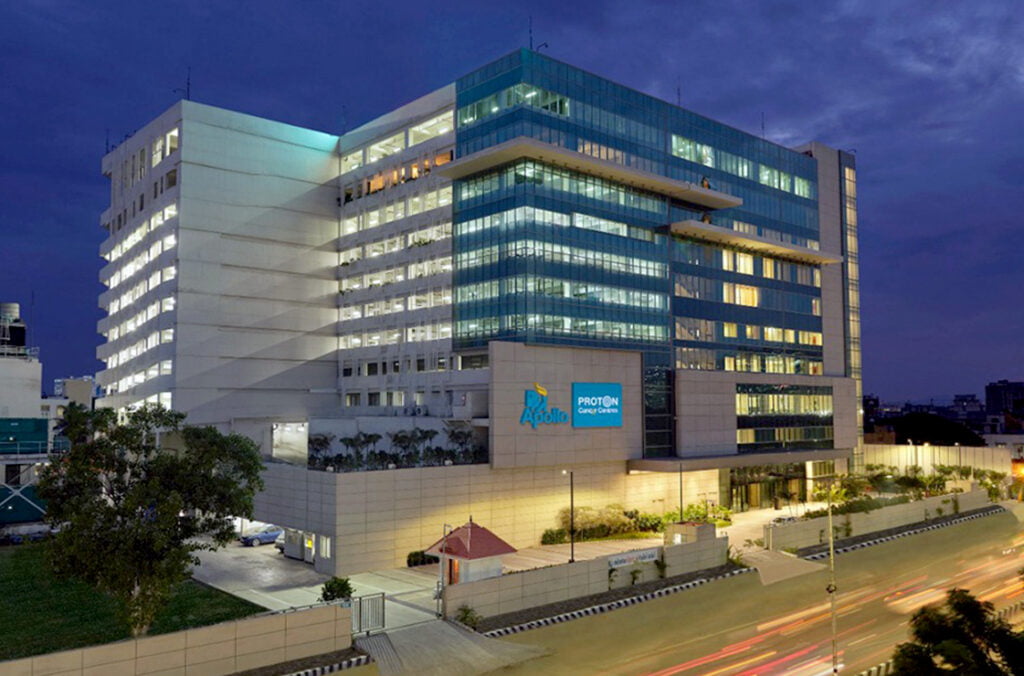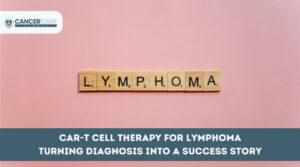In the evolving landscape of cancer treatment, proton therapy has emerged as a groundbreaking advancement, offering a level of precision and efficacy that traditional radiation therapies often cannot match. This innovative treatment uses protons to target cancer cells with pinpoint accuracy, minimizing damage to surrounding healthy tissues.
As India continues to make significant strides in medical technology, proton therapy has become increasingly accessible to patients across the country. This blog post delves into the benefits of proton therapy and provides an in-depth look at one of India’s premier treatment centers, the Apollo Proton Cancer Centre (APCC) in Chennai.
What is Proton Therapy?
Proton therapy represents a major leap forward in radiation oncology. Unlike conventional X-ray radiation, which uses photons, proton therapy employs protons – positively charged particles – to deliver radiation directly to the tumor.
The unique physical properties of protons allow them to release their energy precisely at the tumor site, sparing healthy tissues and organs from unnecessary exposure. This targeted approach is particularly beneficial for treating tumors located near critical structures and for pediatric cancers where minimizing long-term side effects is crucial.
Benefits of Proton Therapy
- Precision Targeting: Protons can be controlled to stop at the tumor site, reducing radiation exposure to surrounding healthy tissues.
- Reduced Side Effects: With less collateral damage to healthy cells, patients often experience fewer and less severe side effects compared to traditional radiation therapy.
- Ideal for Complex Cases: Proton therapy is highly effective for treating complex and hard-to-reach tumors, making it an excellent option for cancers near vital organs or in sensitive areas such as the brain, spine, and eyes.
The Growth of Proton Therapy in India
India has seen a rapid adoption of advanced medical technologies in recent years, positioning itself as a global hub for high-quality, cost-effective healthcare. The introduction of proton therapy in India marks a significant milestone in the country’s fight against cancer. Several factors contribute to the growing demand for proton therapy in India:
- Affordable Healthcare: The cost of proton therapy in India is significantly lower than in many Western countries, making it an attractive option for international patients.
- World-Class Facilities: Indian hospitals are equipped with state-of-the-art technology and staffed by highly trained medical professionals, ensuring top-notch treatment.
- Increasing Cancer Incidence: The rising incidence of cancer in India has driven the need for advanced treatment options, and proton therapy offers a promising solution.
Best Proton Therapy Center in India

Apollo Proton Cancer Centre (APCC) in Chennai is a trailblazer in the field of proton therapy, being the first proton therapy center in South Asia. APCC is part of the Apollo Hospitals Group, renowned for its commitment to excellence in healthcare. Let’s take a closer look at what makes APCC a premier destination for proton therapy.
About APCC: APCC is a cutting-edge cancer treatment facility that combines state-of-the-art technology with a patient-centric approach. The center is designed to provide comprehensive cancer care, from diagnosis and treatment to rehabilitation and support.
Facilities and Technology: APCC is equipped with the latest proton therapy technology, including a synchrotron, which accelerates protons to high energies required for treatment. The center also boasts advanced imaging systems, treatment planning software, and precision delivery systems to ensure the highest level of accuracy in targeting tumors.
Specialized Services: APCC offers a wide range of specialized services to treat various types of cancers. The center is particularly noted for its expertise in treating:
- Brain Tumors: Proton therapy’s precision makes it ideal for treating brain tumors, reducing the risk of damage to surrounding brain tissue.
- Pediatric Cancers: Children benefit greatly from proton therapy due to its reduced side effects, which is crucial for their developing bodies.
- Head and Neck Cancers: The ability to target tumors with high precision while sparing critical structures such as the eyes and spinal cord makes proton therapy a preferred choice for these cancers.
Expert Medical Team: APCC’s medical team comprises some of the most experienced and skilled oncologists, radiation therapists, and support staff in the country. The team works collaboratively to develop personalized treatment plans tailored to each patient’s unique needs.
Patient-Centric Care: At APCC, patient care goes beyond just medical treatment. The center emphasizes a holistic approach, offering nutritional support, psychological counseling, and rehabilitation services to ensure the overall well-being of patients. Personalized treatment plans are developed to address the specific needs of each patient, ensuring the best possible outcomes.
Success Stories and Patient Testimonials
Real-life success stories and testimonials from patients treated at APCC highlight the center’s commitment to excellence and the effectiveness of proton therapy.
Cost and Financial Assistance at APCC
One of the significant advantages of proton therapy in India is the cost-effectiveness. APCC offers world-class proton therapy at a fraction of the cost compared to many Western countries. Here’s a detailed look at the costs and financial assistance options available:
Affordable Treatment: The cost of proton therapy at APCC typically ranges from INR 2,000,000 to INR 2,500,000 (approximately $27,000 to $33,000). This includes initial consultations, diagnostic tests, treatment planning, therapy sessions, and follow-up care.
Insurance and Financial Aid: Many insurance companies in India are beginning to offer coverage for proton therapy. Patients should check with their insurance provider to understand their coverage options. APCC also provides financial counseling and assistance programs to help patients manage the costs of treatment. These programs aim to make proton therapy accessible to a broader range of patients.
How to Access Treatment at APCC?
Accessing proton therapy at APCC is a straightforward process, designed to ensure that patients receive timely and effective treatment. Here’s an overview of the steps involved:
Initial Consultation: Patients can schedule an initial consultation with APCC’s oncology team. During this consultation, the medical history will be reviewed, and diagnostic tests may be conducted to assess the tumor.
Treatment Process: Based on the diagnostic results, a personalized treatment plan is developed. This includes detailed treatment planning using advanced imaging and software to map the precise delivery of proton beams. Proton therapy sessions are conducted daily over several weeks. Each session lasts about 15 to 30 minutes, including setup and positioning.
Travel and Accommodation: APCC offers assistance with travel and accommodation for out-of-town and international patients. The center has partnerships with nearby hotels and guest houses to provide convenient and comfortable lodging options.
How to Choose the right Proton Therapy Hospital?
electing the right hospital for proton therapy is a crucial decision that can significantly impact the outcome of your cancer treatment. With numerous factors to consider, it’s important to ensure that the facility you choose meets high standards of care, technology, and patient support. Here’s a comprehensive guide to help you choose the right proton therapy hospital.
Accreditation and Certifications
Why It Matters: Accreditation from reputable health organizations indicates that the hospital adheres to high standards of medical care and patient safety.
What to Look For:
- National Accreditation: Ensure the hospital is accredited by national health authorities.
- International Certifications: Look for international certifications from organizations such as the Joint Commission International (JCI).
Technology and Equipment
Why It Matters: The quality of technology and equipment directly affects the precision and effectiveness of proton therapy.
What to Look For:
- Advanced Proton Therapy Systems: Ensure the hospital uses state-of-the-art proton therapy systems, such as synchrotrons or cyclotrons.
- Latest Imaging Technology: Advanced imaging systems (MRI, CT, PET) are crucial for accurate treatment planning.
Expertise and Experience
Why It Matters: The expertise of the medical team is paramount to successful treatment outcomes.
What to Look For:
- Qualified Oncologists: Check the qualifications and experience of radiation oncologists and other specialists.
- Track Record: Look for hospitals with a proven track record in proton therapy, including patient outcomes and success stories.
Comprehensive Cancer Care
Why It Matters: Comprehensive care ensures that all aspects of treatment and recovery are addressed.
What to Look For:
- Multidisciplinary Team: A team that includes oncologists, surgeons, radiologists, and supportive care professionals.
- Holistic Approach: Availability of nutritional support, psychological counseling, and rehabilitation services.
Patient-Centric Services
Why It Matters: Personalized care enhances the treatment experience and supports better outcomes.
What to Look For:
- Customized Treatment Plans: Ensure the hospital develops personalized treatment plans based on individual patient needs.
- Support Services: Look for patient support services, including language interpreters, patient navigators, and assistance with logistics.
Cost and Financial Assistance
Why It Matters: Understanding the costs involved and available financial support is essential for planning your treatment.
What to Look For:
- Transparent Pricing: Ensure the hospital provides clear and detailed information about treatment costs.
- Insurance Coverage: Check if the hospital accepts your insurance and if proton therapy is covered.
- Financial Aid Programs: Look for hospitals that offer financial assistance or payment plans.







